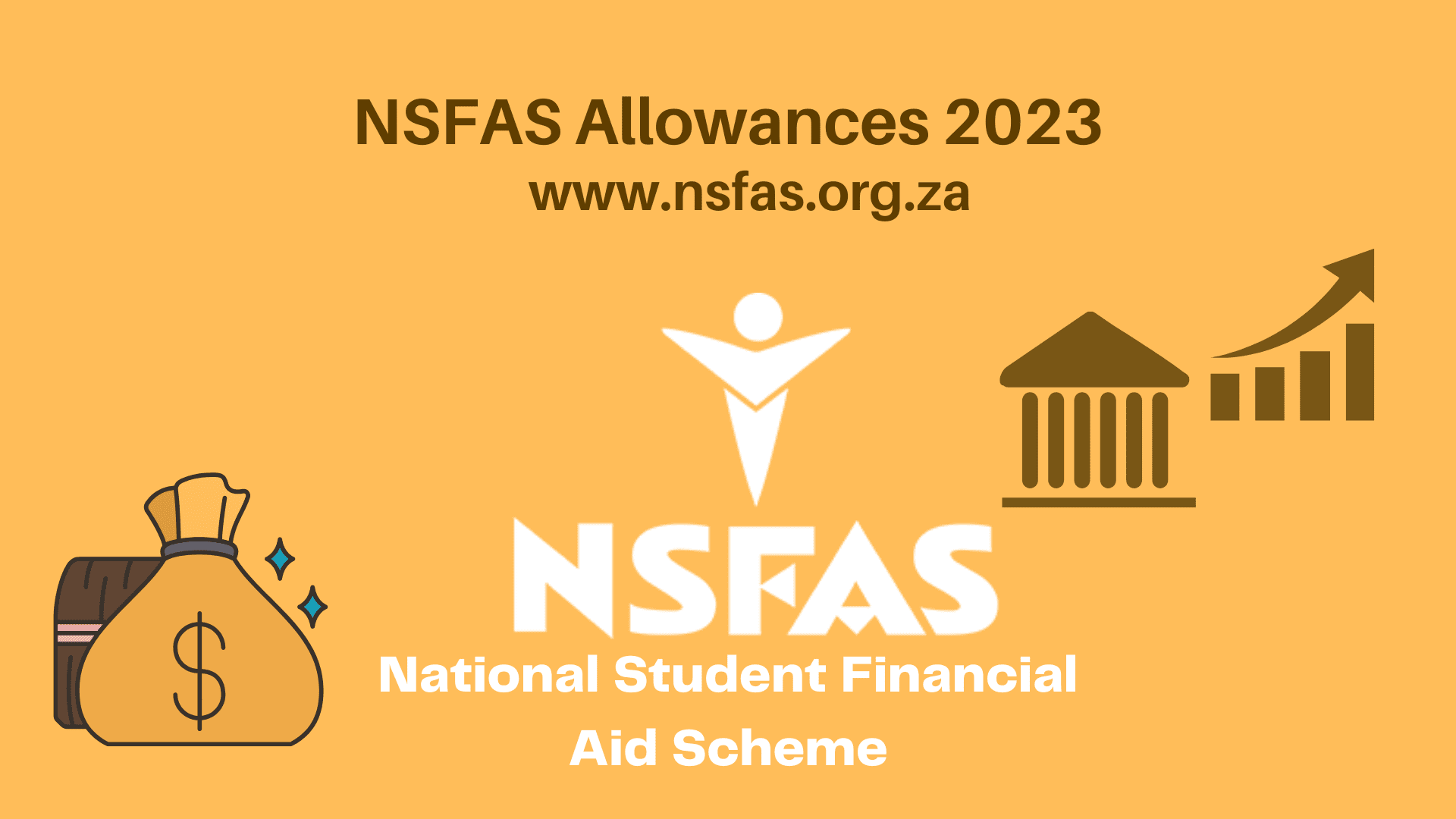
NSFAS Allowances for 2023
The National Student Financial Aid Scheme (NSFAS) is a government-funded financial aid scheme in South Africa that supports undergraduate students in completing their studies at universities and TVET colleges. In the 2023 academic year, NSFAS has allocated a significant amount of funding to assist eligible students. This article provides comprehensive information about the NSFAS allowances for 2023, including the number of funded students, allowance increases, application statistics, expense coverage, and specific allowances for university and TVET college students.
How many students funded by NSFAS for 2023
According to Blade Nzimande, the Minister of Higher Education, Science, and Innovation, the South African government has allocated R47 billion to fund approximately 900,000 beneficiaries through NSFAS for the 2023 academic year. This represents a 7% increase in the number of students eligible for NSFAS bursaries compared to the previous fiscal year. It is noteworthy that more than 60% of undergraduates in public universities and over 90% of TVET college students receive NSFAS funding.
NSFAS Allowance increases from 2022
Minister Nzimande has confirmed that there will be a 5% increase in all allowances for South African tertiary institutions in 2023, excluding living allowances.
Number of NSFAS applications received for 2023
As of now, NSFAS has received over 150,000 applications from potential beneficiaries, with over 600,000 applications receiving provisional funding. Among these applicants, around 330,000 are continuing students, while the remaining 270,000 are new applicants. These figures highlight the importance of providing financial support to students in need.
What expenses does an NSFAS Allowance cover?
NSFAS provides allowances to students in the form of learning materials allowance, accommodation allowance, and living allowance. The value of these allowances depends on whether students reside on-campus or in private accommodation.
NSFAS 2023 Allowances for University students
For university students, the allowances vary depending on their specific circumstances:
- Students managed and catered by universities will receive a learning materials allowance of R5,460 and an accommodation allowance of up to R61,500 if the university provides both catering and accommodation.
- Students managed by a university but self-catering will receive a learning materials allowance of R5,460, a living allowance of R16,500 per annum, and an accommodation allowance capped at R45,000.
- Students living with relatives (not in private accommodation) will receive a learning materials allowance of R5,460 and a living allowance of R16,500 per annum.
- Students living in private, off-campus accommodation will receive a learning materials allowance of R5,460, a living allowance of R16,500 per annum, and an accommodation allowance capped at R45,000.
It’s important to note that the living allowance increment for all university students will be R1,650 per month, representing a 10% increase compared to 2022.
NSFAS 2023 Allowances for TVET students
For TVET college students, the allowances are as follows:
- Students at TVET colleges with own catered residence will receive an accommodation allowance of R54,045 per annum.
- Students at TVET colleges with managed own and leased self-catered accommodation will receive a living allowance of R6,000, a personal care allowance of R3,045, and a living allowance paid directly to the TVET college of up to R45,000.
- Students living in private accommodation will receive a living allowance of R6,000, a personal care allowance of R3,045, and an accommodation allowance of R45,000 per annum.
- Students living within 10km of their college will receive a living allowance of R6,000, a personal care allowance of R3,045, and a travel allowance of R7,718.
It’s worth mentioning that the above allowances were sourced from the SA Government News Agency website.
How are NSFAS student allowances paid?
NSFAS disburses student allowances directly into their approved bank accounts. To access these funds, students must complete the NSFAS direct payment onboarding process. NSFAS also negotiates a student-based transaction fee on behalf of the students, which is reviewed regularly.
For any queries, students can contact NSFAS via the following channels:
- Call: 080 006 7327 (toll-free number)
- Email: [email protected]
Was this helpful?
0 / 0
#Bursaries #Education